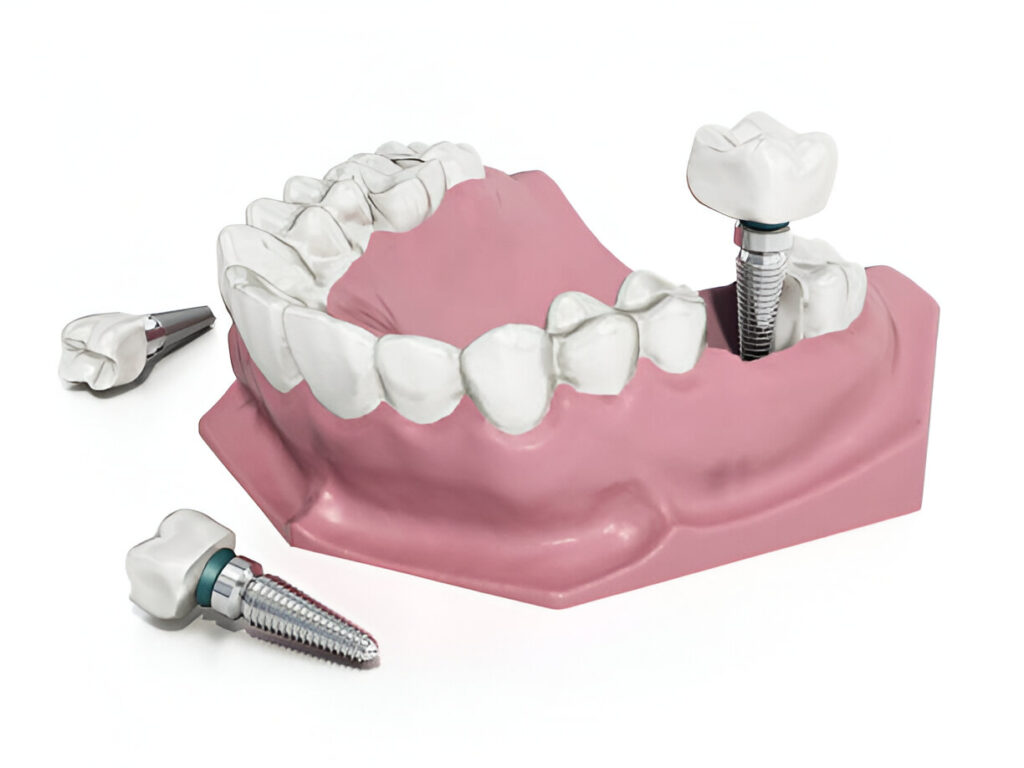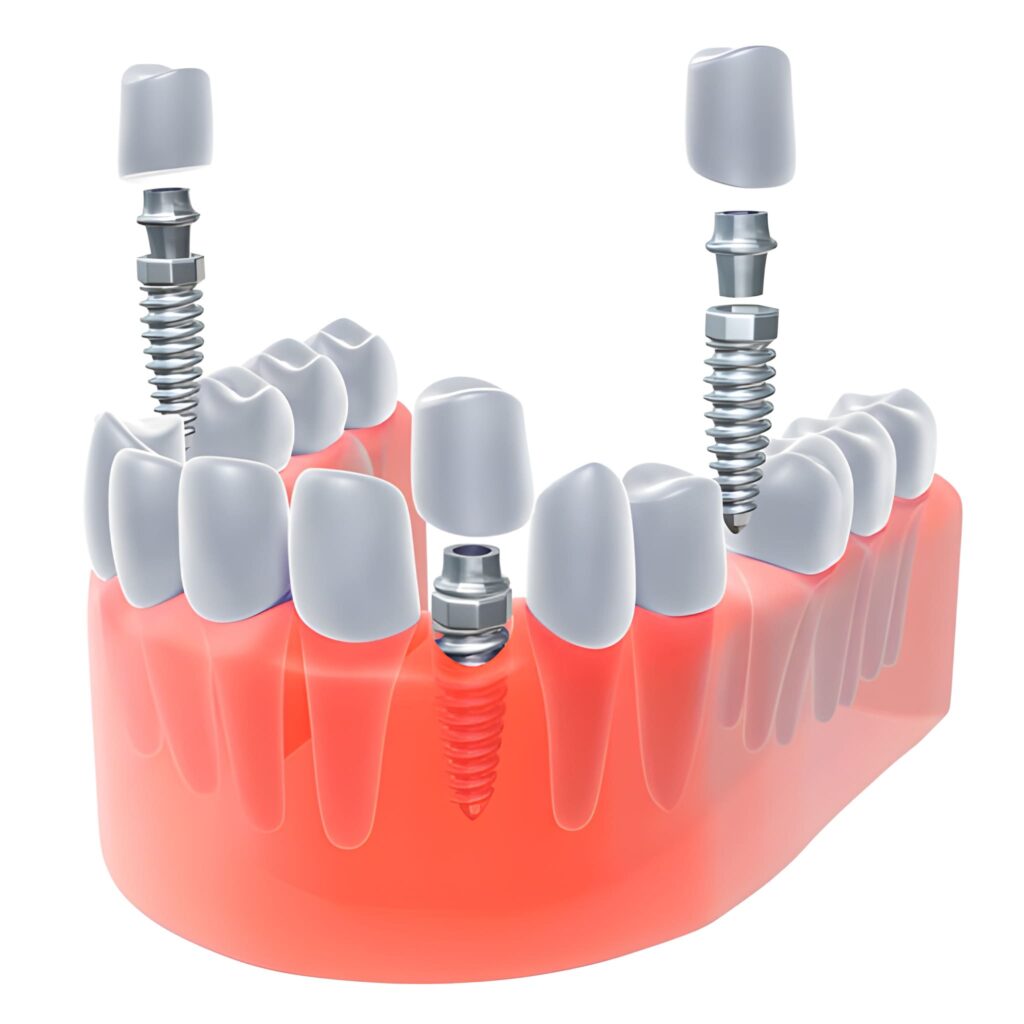Dental implant surgery is a great way to restore your smile and boost your confidence. However, just like any surgery, the recovery period requires special care. One of the most important things to consider during your recovery is your diet. What you eat can significantly affect the healing process. In this article, we will go over the best foods to eat after dental implant surgery in the UK, as well as which foods to avoid, so you can heal quickly and comfortably.
Foods to Avoid After Dental Implant Surgery
After dental implant surgery, your mouth will need time to heal. During this period, it’s important to avoid certain foods that can harm your implants or slow down the recovery process. Here are some foods to stay away from during the first few weeks:
- Crunchy Foods
Crunchy foods, such as chips, nuts, and hard candy, can put a lot of pressure on your new implant. These foods may cause the implant to shift or even damage it. They can also irritate your healing gums. - Sticky Foods
Sticky foods, like caramel, toffee, or gummy sweets, can get stuck around the implant. This makes cleaning difficult and increases the risk of infection. Stick to softer foods that won’t cling to your teeth and gums. - Hot and Spicy Foods
Hot foods like curries, soups, or spicy dishes can irritate the surgical site. This can delay the healing process and make you uncomfortable. It’s best to avoid spicy and very hot foods until your mouth is fully healed. - Acidic Foods
Acidic foods, such as tomatoes, citrus fruits, and vinegar-based sauces, can cause discomfort around the implant area. The acidity can irritate your gums, which may already be sensitive after surgery. - Tough and Chewy Foods
Foods like raw vegetables, tough meats, and pizza crusts require a lot of chewing. This can strain the implant site, making it harder to heal. It’s better to stick to softer foods that don’t require much chewing.
What To Do If Your Dental Implant Is Loose?
Best Foods to Eat After Dental Implant Surgery
While there are foods to avoid, there are also many soft and easy-to-eat options that can support your healing process. Here are some of the best foods to enjoy in the days and weeks following your dental implant surgery:
- Yoghurt
Yoghurt is smooth and soft, making it perfect for the healing stage. It’s also full of calcium and protein, which can help strengthen your gums and bones. Stick to plain or lightly flavoured yoghurt to avoid irritation. - Smoothies
Smoothies are a great option because you can pack them with nutritious ingredients without needing to chew. Use fruits, vegetables, and protein powders to create a delicious and healthy drink. Just remember not to use a straw, as the suction can put pressure on your new implant. - Mashed Potatoes
Mashed potatoes are soft and easy to eat, making them a comforting option during recovery. You can flavour them with butter, cheese, or gravy, but avoid adding any hard ingredients like crunchy bacon bits or nuts. - Soup
Warm, blended soups are an excellent choice. They provide comfort and nourishment while being gentle on your gums and implants. Go for smooth soups like tomato, pumpkin, or chicken, and avoid anything with large chunks of vegetables or meat. - Scrambled Eggs
Scrambled eggs are soft, easy to eat, and rich in protein, which is essential for healing. You can even add soft herbs or cheese for extra flavour. Just make sure they are cooked gently and remain soft. - Cottage Cheese
Cottage cheese is soft and packed with protein and calcium. It can be eaten on its own or mixed with fruits or even blended into a smoothie. This makes it a versatile food for your recovery period. - Porridge
Porridge is another soft food that is easy to eat after dental implant surgery. It provides fibre and can be made with water or milk. You can also add honey or fruit to give it some extra flavour without making it too hard to eat. - Apple Sauce
Apple sauce is soft and easy to digest. It is also a good source of vitamins, which can help boost your immune system and support the healing process. It’s a great snack option that doesn’t require chewing. - Bananas
Bananas are soft, easy to eat, and full of nutrients. They are a great source of potassium, which is good for overall health. Mash the banana if you find it easier to eat, especially during the first few days of recovery.
What are the Signs of Peri-Implantitis?
Gradually Reintroducing Harder Foods
As you start to heal, you can gradually reintroduce firmer foods into your diet. However, it’s important to do this slowly and listen to your body. If you feel discomfort, it’s best to go back to softer foods for a little while longer. Here are some foods you can start to add back after a few weeks:
- Pasta
- Cooked Vegetables
- Soft Meats (like chicken or fish)
- Cheese
- Bread (avoid crusty bread for a while)
Remember, everyone heals at a different rate. Don’t rush the process, and always follow the advice of your dentist or oral surgeon.
Hydration Is Key
In addition to eating the right foods, staying hydrated is also important. Drink plenty of water throughout the day to help keep your body hydrated and support the healing process. Avoid drinking with a straw, as this can create suction and potentially damage the implant site. Opt for room-temperature drinks rather than very hot or cold beverages.
Does it Hurt to Get Teeth Implants?
Final Thoughts
After dental implant surgery, your diet plays a key role in how quickly and effectively your mouth heals. Sticking to soft, nutritious foods and avoiding anything too tough or spicy can help your gums and jaw heal faster. Don’t rush into eating harder foods until your dentist gives you the go-ahead, and always listen to your body.
By following these simple guidelines and maintaining a well-balanced diet, you can ensure that your dental implants heal properly and that you stay comfortable during your recovery. Take care of your implants; they will help you enjoy a beautiful, healthy smile for many years.
Book an appointment today!
Ready to Heal and Smile Again?
At Cove Dental and Implant Centre, we understand that recovering from dental implant surgery can feel challenging, but with the right care and guidance, you’ll be back to enjoying your favourite foods in no time. If you’re looking for expert dental care and affordable options, we are here to help. Our team is committed to providing you with the best possible care throughout your recovery journey.
Whether you’re seeking a reliable and affordable dentist in Aberdeen for dental implants or routine check-ups, we offer personalised treatment plans that suit your needs and budget. Contact us today to schedule your consultation and start your journey toward a brighter, healthier smile!
Can a Dental Implant Be Done in One Day?
Frequently Asked Questions
Can I drink coffee after dental implant surgery?
You can drink coffee, but it should be lukewarm, not hot. Avoid using a straw, as it creates suction, which may affect the healing process of your implant.
What should I avoid eating after dental implant surgery?
Avoid crunchy, sticky, hot, spicy, and acidic foods, as they can irritate the surgical site, damage your implant, or delay healing. Stick to soft, easy-to-chew foods for the first few weeks.
Can I eat soup after dental implant surgery?
Yes, blended soups are a great option. They’re soft, easy to swallow, and provide nourishment without disturbing your healing gums or implant. Ensure the soup is not too hot to avoid irritation.
How soon can I eat solid food after dental implants?
You can start eating solid foods about 10-14 days after surgery, depending on your healing progress. Begin with softer solids like scrambled eggs or well-cooked pasta before moving on to harder foods.
Is it okay to eat dairy after dental implant surgery?
Dairy products like yoghurt and milk are generally fine after dental implant surgery. They provide calcium and protein, essential for healing, but avoid excessively cold or spicy dairy items that might cause discomfort.
Can NHS Pay for My Dental Implants?





